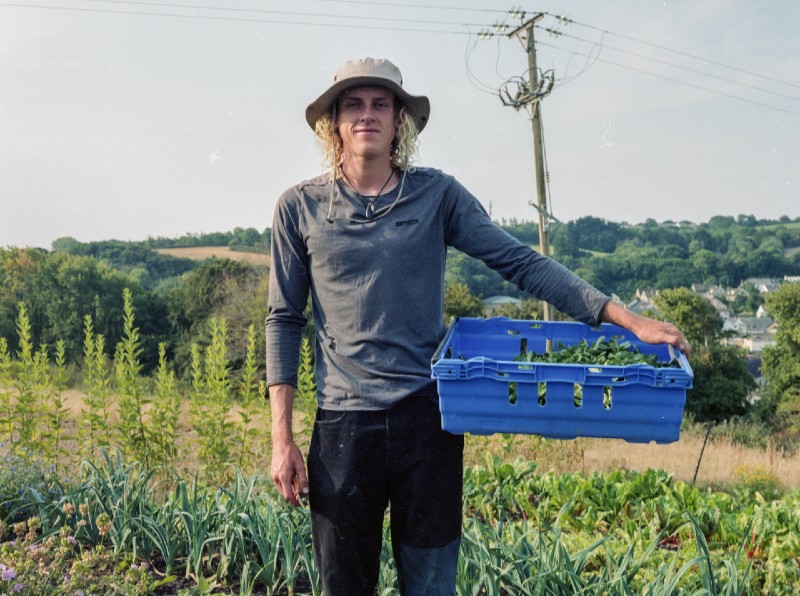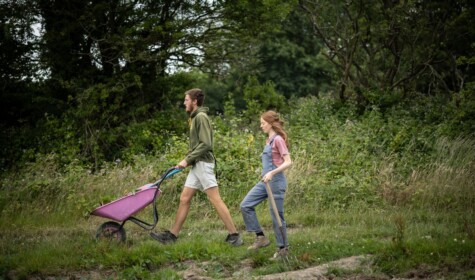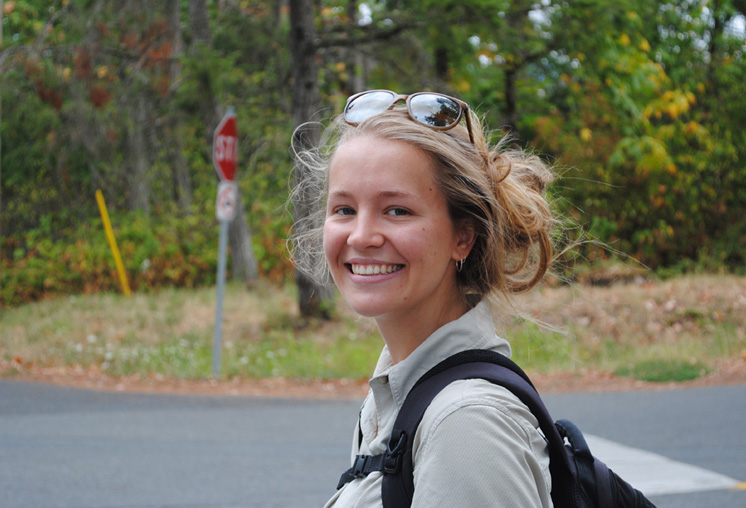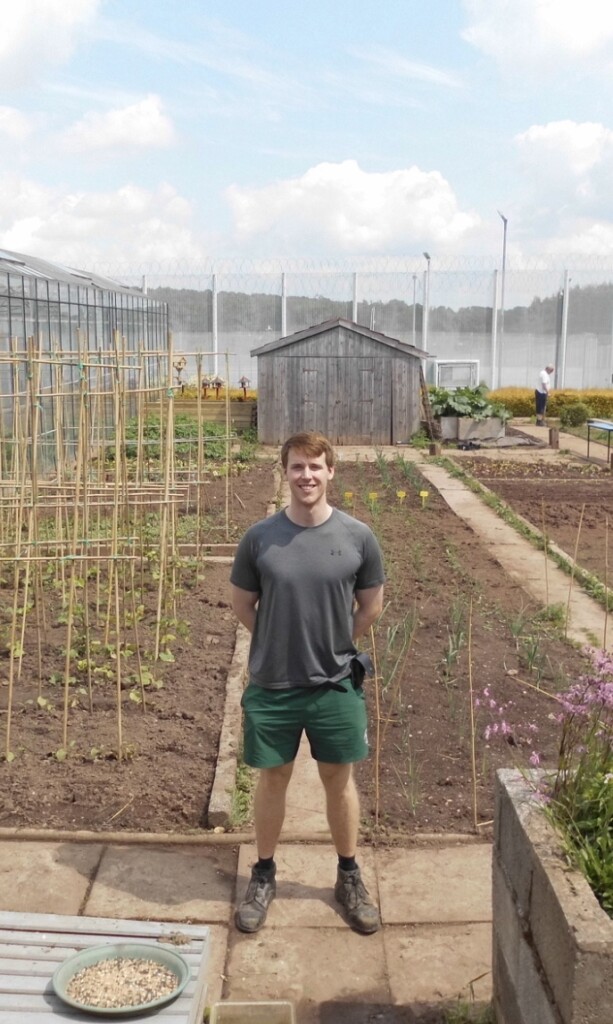A new generation of young farmers, growers and landworkers are coming into agriculture, motivated by a need to do something meaningful in the face of the climate crisis and biodiversity loss. None, however, come from a farming background. Here, they talk about the issues that they face as new entrants and the choices they’ve made and why.
Finn Halsall
Finn Halsall is 23 and has been working in Cornwall for the past 4 years. He aims to help tackle the key problems of our world and to try and make the planet a better place. For him, this means focusing on the climate crisis and social injustice through growing food in an ecological way. Since graduating in Conservation Biology and Ecology, he’s been working at two growing projects – as a trainee and now grower at Goonown Growers , and at a community field called ‘Love Land’, which is a branch of Falmouth Food Co-op, where he’s leading on the creation of a new commercial growing project.
Tell me about yourself – how did you get interested in growing? Do you come from a farming background or is this new territory?
I work at a market garden and also a community growing project – I’m part-time on both. I got into growing about four or five years ago, when I was in Nepal. I was really inspired by the self-sufficiency that I saw over there, where local people were so resilient and growing a lot of their own food in rural areas. I was hooked and came back from travelling and made a huge garden at home and started reading loads of books and watching videos, and it escalated from there.
After travelling, I went to university to study conservation biology, and I still thought that I’d just garden and grow my own food on a large home garden scale and work in wildlife conservation as a career. But shortly after starting uni, I decided that what I actually wanted was to have a career in growing, and after completing my course, I took my first job in farming.
Did you at any point do any kind of formal training?
No, not like qualifications – just lots of time spent volunteering and visiting places, and it was great to have experienced so many different projects first hand. I’m yet to discover a formal qualification that really fits into what I’m interested in. Especially because conventional agriculture colleges and courses barely touch on organic.
You work on two different projects as an employee – how did you find the work?
Yes, at the market garden I’m an employee; I started out with a paid traineeship scheme. And at the community garden, I’m also an employee. There, I’m leading the growing project and I manage the actual vegetables, so it’s a lot of responsibility. Fortunately, this year, my salary has been funded externally, but going into next year, we’re going to try and make it sustain itself financially, which is a big deal. It’s definitely a great step on from voluntary roles to getting paid to work on farms.
Is your long-term goal to own and farm your own land, or are you happy working for and with others?
Definitely the dream is to own my own land, largely because I would like to also have a bit of land to live on. But helping on someone else’s project or getting involved in an existing project isn’t out of the question – it just requires finding the right project. I’d love to be involved in a project from the start – whether that’s on my own or with other people.
What are the main issues you face as a young grower?
There are obviously key issues in getting started: access to land, the financing that you need. Many of those setting up their own projects come from privileged backgrounds, owning their own property or having financial help from family. There are definitely a lot of barriers getting into farming. I’m lucky to work on a farm which pays me a wage, and to also be involved in a community project which has access to funding. If I was to set something up on my own, I’d need a huge amount of money and access to land, which is ever increasing in price and harder to find.
I’d like to live on the land I work, but there are all kind of rules and regulations and planning issues and policies regarding that. The One Planet Development policy in Wales is a step in the right direction.
In terms of support for the work you do, are there things that you feel young people need to go forward in farming and growing?
I don’t know how anyone can make young people feel attracted to farming. I think there needs to be more education – I learnt how important farming is and that it’s a meaningful way to take action on the various injustices in the world. It needs to be talked about more and encouraged from top down and in schools. Volunteering offers great opportunities for young people to learn, but how do we get more young people to volunteer? More training opportunities would be great – the Kickstart scheme, which was government funded training, was brilliant and a lot of farms took advantage of it. It allowed young people to be paid for their work.





